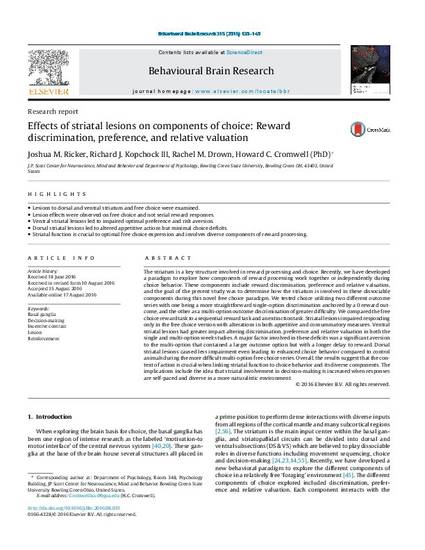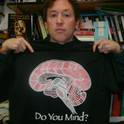
Article
Striatal_Lesions_Choice Components.pdf
Behavioral Brain Research
(2016)
Abstract
The striatum is a key structure involved in reward processing and choice. Recently, we have developed a paradigm to explore how components of reward processing work together or independently during choice behavior. These components include reward discrimination, preference and relative valuation, and the goal of the present study was to determine how the striatum is involved in these dissociable components during this novel free choice paradigm. We tested choice utilizing two different outcome series with one being a more straightforward single-option discrimination anchored by a 0 reward outcome, and the other as a multi-option outcome discrimination of greater difficulty. We compared the free choice reward task to a sequential reward task and an extinction task. Striatal lesions impaired responding only in the free choice version with alterations in both appetitive and consummatory measures. Ventral striatal lesions had greater impact altering discrimination, preference and relative valuation in both the single and multi-option week studies. A major factor involved in these deficits was a significant aversion to the multi-option that contained a larger outcome option but with a longer delay to reward. Dorsal striatal lesions caused less impairment even leading to enhanced choice behavior compared to control animals during the more difficult multi-option free choice series. Overall, the results suggest that the context of action is crucial when linking striatal function to choice behavior and its diverse components. The implications include the idea that striatal involvement in decision-making is increased when responses are self-paced and diverse in a more naturalistic environment.
Keywords
- Basal ganglia,
- reward,
- motivation,
- choice,
- decision-making
Disciplines
Publication Date
Winter December, 2016
Citation Information
Howard C Cromwell. "Striatal_Lesions_Choice Components.pdf" Behavioral Brain Research (2016) Available at: http://works.bepress.com/howard_casey_cromwell/20/
